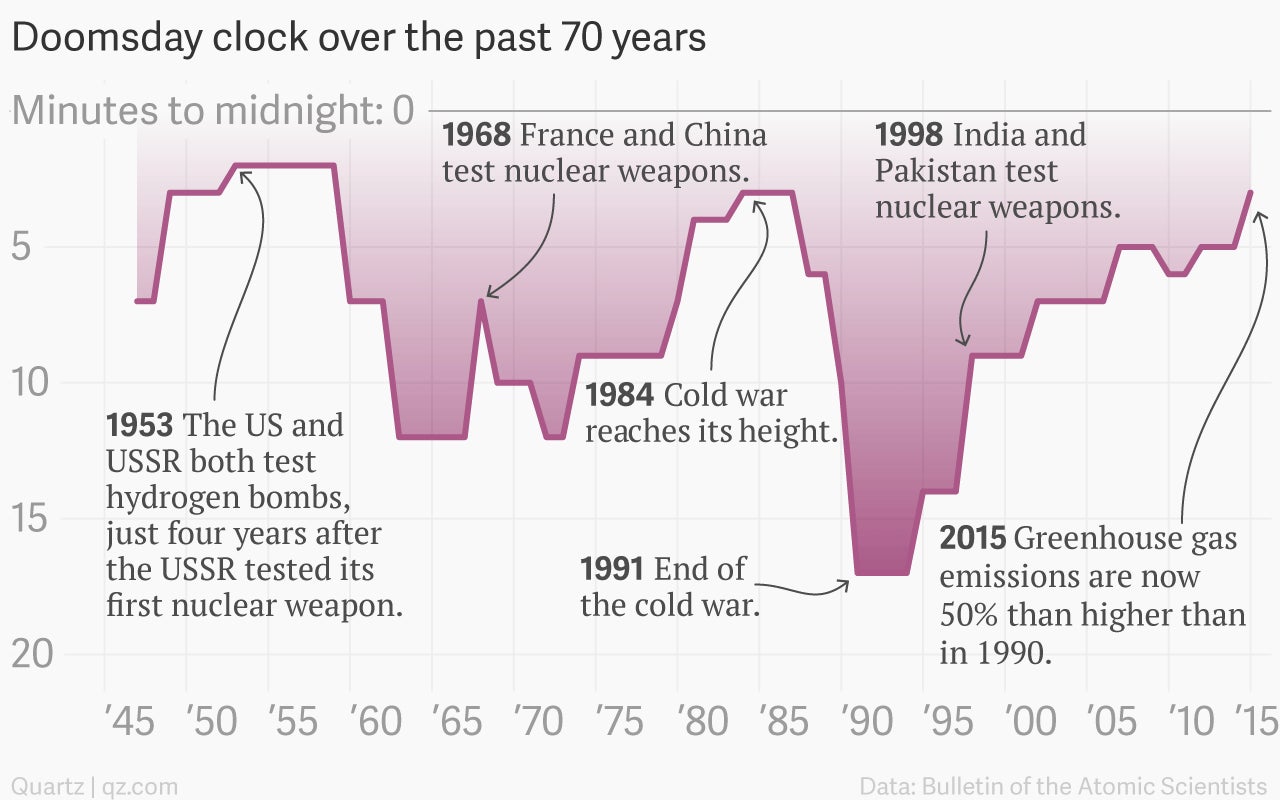Scientists believe we’re the closest to the end of humanity since the Cold War
This is an article from 2015. Read our most recent coverage of the Doomsday Clock: In 2022, the Doomsday Clock didn’t change for the second year running


This is an article from 2015. Read our most recent coverage of the Doomsday Clock: In 2022, the Doomsday Clock didn’t change for the second year running
The Bulletin of Atomic Scientists announced Jan. 22 that it is moving the hand of the “Doomsday Clock” two minutes closer to midnight. Through a combination of nuclear weapons and increasing global warming, the Bulletin’s executive director Kennette Benedict said that there were some “truly terrible prospects” for the fate of humanity on the horizon, and implored “the citizens of the world to think clearly” about its future.
This item is about the 2015 update to the Doomsday Clock. In 2021, the Doomsday Clock remained at 100 seconds to midnight.
The Bulletin, which has been monitoring how close humanity is to annihilating itself since 1947, uses midnight on a clock face as a metaphor for a catastrophic event. The clock was last set at three minutes to midnight in 1987, during the Cold War. The closest the minute hand has ever been to midnight was between 1953 and 1959, when the US and Soviet Union were regularly testing nuclear warheads.

While it might not be time to reintroduce air raid drills, there is a legitimate concern, especially around carbon emissions. The Bulletin called the changes in the world’s temperature and emissions in recent years as “unprecedented.” The panel announcing the change said that last time Earth had a modest increase in average temperature of 3 to 8 degrees—which we are currently facing—that was enough to end the last Ice Age. The panel also said that the last three decades have been warmer than the preceding decade, although the US Senate seems to disagree that humanity is having any impact on the Earth’s temperature.
The threat of nuclear war was also mentioned, though the panel suggested that the global inclination to replace carbon-based power plants with nuclear power was more of an issue. The panel was concerned with the Russian incursion into Crimea, but was less concerned that someone was “going to press the button” on a nuclear weapon, and more concerned that about having to maintain nuclear material at all, which increases ”the prospect for nuclear accidents,” Benedict said.
“We can manage our technology, or become victims of it. The clock is ticking,” she added.